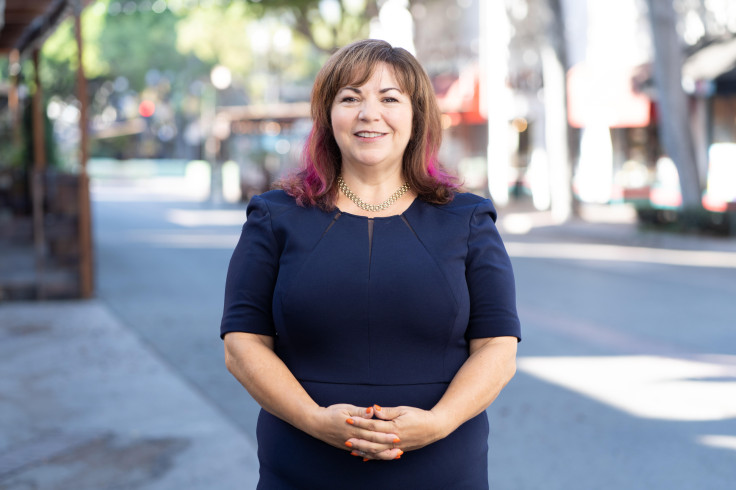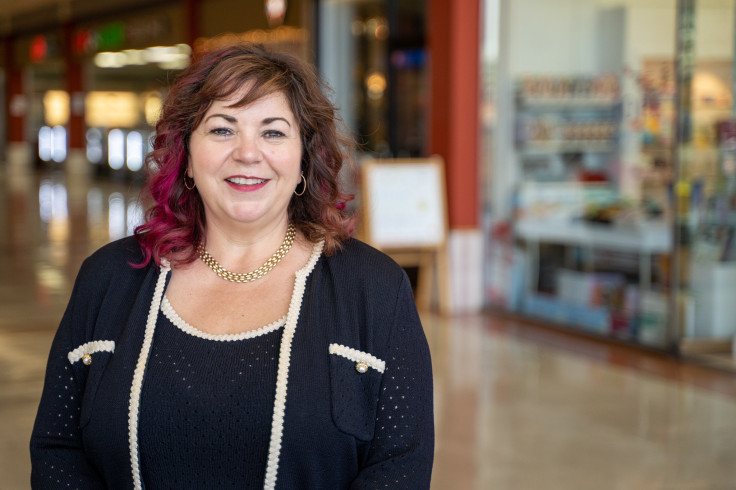This article is part of The Latin Times' Latinas 2024, a thematic week focused on Latina's impact on the U.S. economy, culture, and politics. Although Latinas comprise more than 30 million people in the U.S., according to the Pew Research Center, they still face major day-to-day challenges, including underrepresentation, the gender pay gap, labor discrimination, and sexual harassment. Discover our articles and interviews exploring the complexities of being Latina in the U.S. today.

A former labor lawyer and daughter of immigrants from Mexico, Congresswoman Linda Sánchez represents California's 38th congressional district and serves as the chairwoman of BOLD PAC, the campaign arm of the Congressional Hispanic Caucus.
The organization aims to counter the Republican push to win over Latina voters and, at the same time, elect more Latinas to the House and Senate in the 2024 Election, helping counter the demographic's underrepresentation in the national political scene.
Latinos are on track to represent 20 percent of the U.S. population, but their representation in the Lower House currently stands 11 percent. Women are even further behind: there are currently 19 Latinas in the House, 13 Democrats and six Republicans, and Senator Catherine Cortez Masto, D-Nevada, is the only Latina senator.
In this context, Linda Sanchez spoke with The Latin Times for the outlet's 'Latina Women's Week' special, which coincides with Women's International Day. The following interview has been edited for length and clarity.
You have mentioned the significant role Latina voters will play nationwide in 2024 Elections, particularly in key states like California, Pennsylvania, and Arizona. Why focus on Latina women specifically? What issues will you focus on to win in these states?
Latina voters are incredibly important because they tend to be the driving force within Latino families for getting members out to vote. In many households, if you can reach Latina voters with messaging and information, they're more likely to vote, and they are more likely to get their family members out to vote as well. We know that there are Latino populations all over the United States and they have delivered key victories in the last several election cycles. They were key in 2022. Theirs was a key vote in states like California, Pennsylvania and Arizona. And we expect that they will also be critical in those states again and in many others. We are focused on reaching out to Latina voters to talk to them about the issues that they care about.
Something that is at the top of Latina voters' minds is reproductive rights, autonomy over their bodies, their ability to decide when or if to become a mom and start a family. Fifty percent of Latinas in the United States are of childbearing age. So this is an issue that really impacts a large percentage of Latinas. And they're going to be very, very interested to hear where candidates stand on the different issues that will impact their ability to make decisions for themselves.
How do you foresee the evolution of the political battle over abortion in the United States in the near future?
It's really interesting because the Alabama Supreme Court decision (which determined that embryos created through IVF should be considered children) took the anti-abortion position to a very extreme place. And what we are seeing is people who are trying to make laws or judicial decisions based on their personal religious beliefs and trying to impose that onto a broader population.
Latinas don't want politicians deciding what they can or cannot do with their bodies. Their medical decisions, they feel, should be made by them in consultation with their doctor and their conscience. So I think that we are going to see very unintended consequences from this single minded pursuit in cutting off all reproductive care and reproductive options for women. And I think Latinas are not going to be happy with those candidates who are trying to continually impose these extreme policies onto their families and onto themselves.

Moving to immigration, president Biden has strongly criticized Trump's border policies as cruel and inhumane. However, do you believe his recent push for stricter border measures might erode support from the Latino community that backed him in 2020?
On his first day in office, President Biden introduced a comprehensive immigration reform bill that sought to address the issue of the ever-growing number of people showing up at the border. And we do need to get at those root causes. Right now we are seeing numbers that continue to grow unlike anything we've seen before. And, quite frankly, we're not prepared to handle them. In the past we were used to mainly economic migrants, which were generally single men. And so the housing and the processing was really geared towards single men, not families, not children, not pregnant women. But with those increased numbers and without the capacity to house them or process them, President Biden is looking at ways in which we can slow down the numbers that are at the border.
So, Republicans are definitely trying to make an issue out of demonizing immigrants and instilling fear about invasions at the border, suggesting that immigrants may replace U.S. workers. But what they have asked for in a bipartisan bill that was introduced and negotiated in the Senate, they then walked away from. So they got what they wanted and then they walked away from it because they're not fundamentally interested in solving the issue at the border. They're interested in using the numbers at the border to point fingers, to play the blame game and to score cheap political points because they know that they cannot win over the electorate on their policy ideas and positions.
Could this erode some of the support of Latino voters that backed Biden in 2020?
Well, while it's true that many immigrant rights groups are unhappy with some of the proposals to slow the numbers at the border, the alternative vision that Trump has for this country is frightening, because we are talking about tearing apart democratic institutions, shutting the border completely, and not allowing folks to claim asylum. So I understand the frustration that many immigrant rights groups and very progressive Latinos will have with Biden's position. But the fact of the matter is, we do need to establish a more orderly system at the border. And the alternative is starkly ugly in contrast to what Biden is proposing to do at the border.
As for the elections, what are your quantitative goals for this cycle? Do you aim to reach a specific number of elected officials?
We have seen great success throughout BOLD's existence. We have more than doubled the size of the Hispanic Caucus. And right now we have 41 members in Congress. Fourteen of us are women, including the first ever Latina in the Senate, Senator Catherine Cortez Masto. Our priorities are, first and foremost, defending the incumbents that we have elected and then making sure that we are recruiting great Latina and Latino candidates and encouraging them to run for office nationwide and providing them with the resources and support that they're going to need in order to win when there are elections.
Right now we have 16 BOLD endorsed candidates. Eight of them are women. And they're going to be integral in Democrats taking back the majority in Congress and defending the Senate and the White House. Our goal is to increase the numbers and the diversity of elected representatives at the federal level so that our Congress looks like the America that it's elected to represent.
What do you look for in a candidate to endorse them?
There are many things that go into our endorsement decisions. We typically send out a questionnaire to gauge where they are on issues of importance to the Latino community. We look to see, you know, their viability. Have they run for office before? Do they have experience? Have they held public office before? Are they a good fit for the district that they're running in? Can they raise resources to a certain threshold level of resources that means that they're going to be viable candidates. There are many different aspects that go into our endorsement process.
© 2025 Latin Times. All rights reserved. Do not reproduce without permission.





